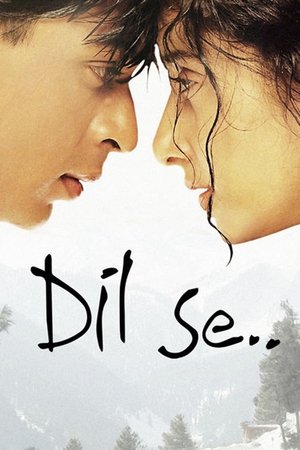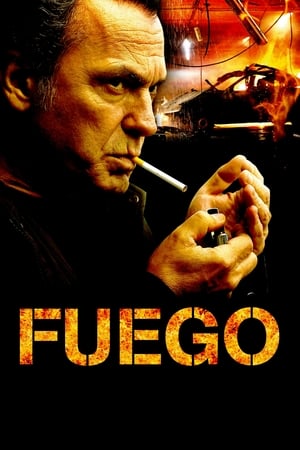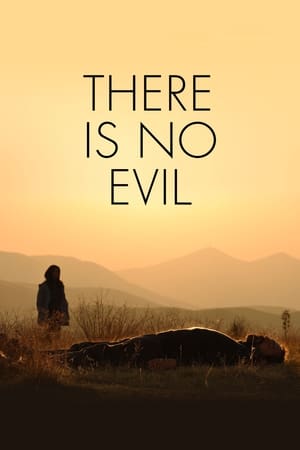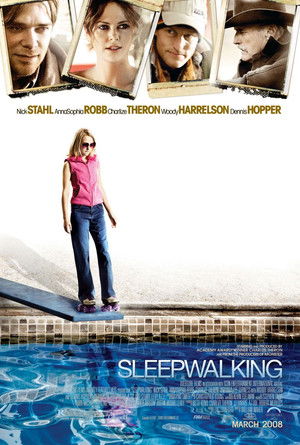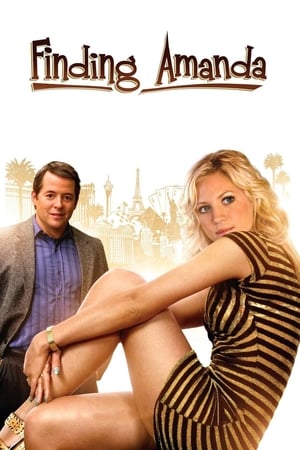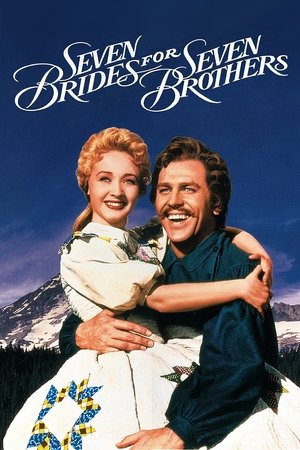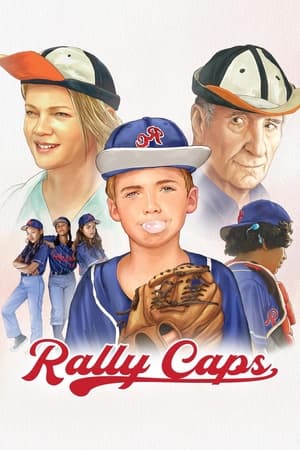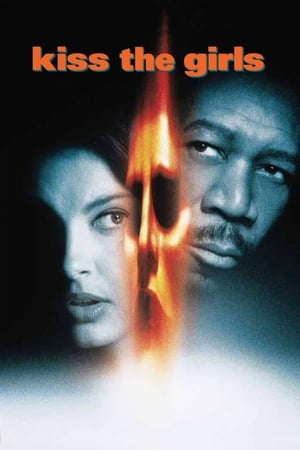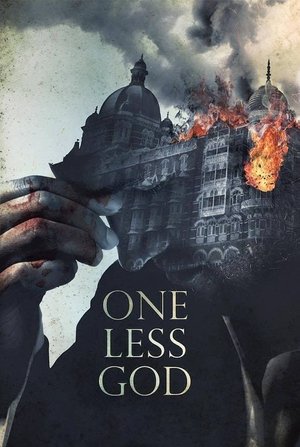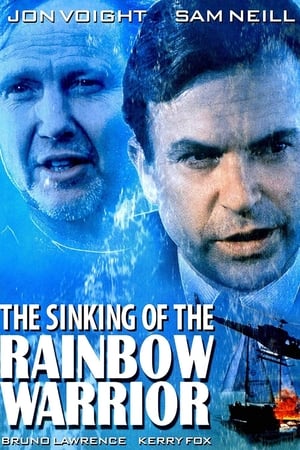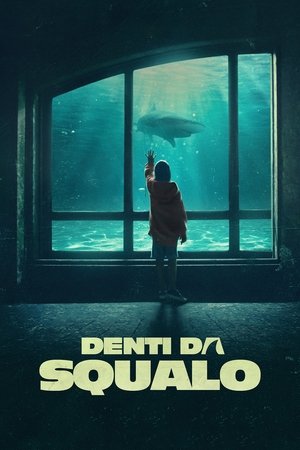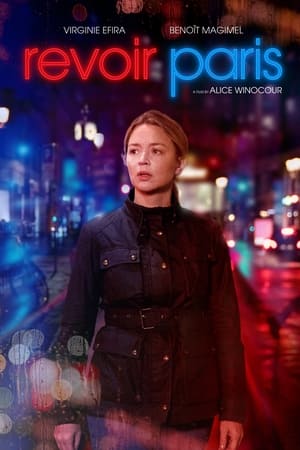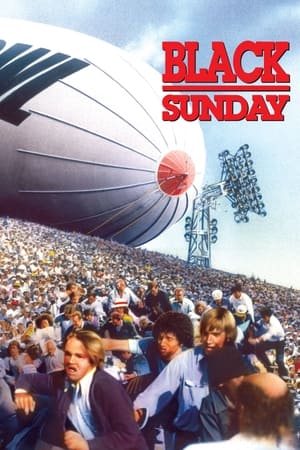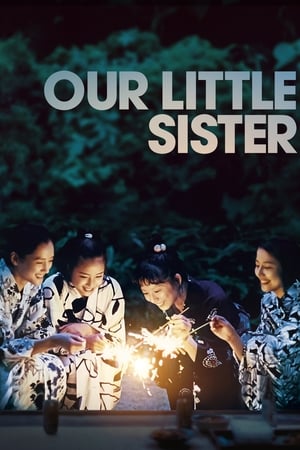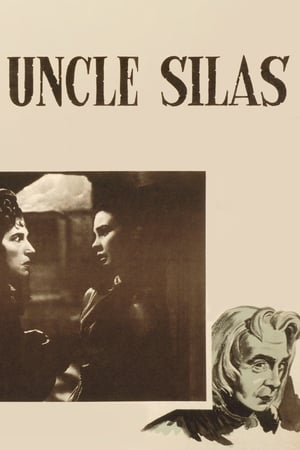Overview
David, who gets by doing odd jobs, meets Léna, who has just moved up to Paris, and falls in love. But soon after, his life is brutally interrupted by the sudden death of his sister. Beyond the shock, and the pain, David now finds himself alone with his young niece Amanda to care for.
Reviews
_**A gentle, albeit very pedestrian drama about the importance of family during times of tragedy**_
>_you never think it will happen to you. It was just a Friday night at a rock show. The atmosphere was so happy and everyone was dancing and smiling. And then when the men came through the front entrance and began the shooting, we naively believed it was all part of the show. It wasn't just a terrorist attack, it was a massacre. Dozens of people were shot right in front of me. Pools of blood filled the floor. Cries of grown men who held their girlfriends dead bodies pierced the small music ve__nue. Futures demolished, families heartbroken. in an instant. Shocked and alone, I pretended to be dead for over an hour, lying among people who could see their loved ones motionless. Holding my breath, trying to not move, not cry – not giving those men the fear they longed to see. I was incredibly lucky to survive. But so many didn't. The people who had been there for the exact same reasons as I – to have a fun Friday night were innocent. This world is cruel. And acts like this are suppose to highlight the depravity of humans and the images of those men circuling us like vultures will haunt me for the rest of my life. The way they meticoulsy aimed at shot people around the standing area i was in the centre of without any consideration for human life. It didn't feel real. I expected any moment for someone to say it was just a nightmare. But being a survivor of this horror lets me able to shed light on the heroes. To the man who reassured me and put his life on line to try and cover my brain whilst i whimpered, to the couple whose last words of love kept me believing the good in the world, to the police who succeeded in rescuing hundreds of people, to the complete strangers who picked me up from the road and consoled me during the 45 minutes I truly believed the boy I loved was dead, to the injured man who i had mistaken for him and then on my recognition that he was not Amaury, held me and told me everything was going to be fine despite being all alone and scared himself, to the woman who opened her doors to the survivors, to the friend who offered me shelter and went out to buy new clothes so i wouldn't have to wear this blood stained top, to all of you who have sent caring messages of support – you make me believe this world has the potential to be better. to never let this happen again. but most of this is to the 80 people who were murdered inside that venue, who weren't as lucky, who didn't get to wake up today and to all the pain that their friends and families are going through. I am so sorry. There's nothing that will fix the pain. I feel priviledged to be there for their last breaths. And truly beliving that I would join them, I promise that their last thoughts were not on the animals who caused all this. It was thinking of the people they loved. As i lay down in the blood of strangers and waiting for my bullet to end my mere 22 years, I envisioned every face that I have ever loved and whispered I love you. over and over again. reflecting on the highlights of my life. Wishing that those I love knew just how much, wishing that they knew that no matter what happened to me, to keep believing in the good in people. To not let those men win. Last night, the lives of many were forever changed and it is up to us to be better people. To live lives that the innocent victims of this tragedy dreamt about but sadly will now never be able to fulfill. RIP angels. You will never be forgotten._
- Isobel Bowdery; _Facebook_ post written on November 14, 2015, immediately after the Paris terrorist attacks which took 130 lives and left 413 injured, 97 seriously. Two years later, one of the survivors committed suicide and was officially recognised as the 131st victim
Written by Mikhaël Hers and Maud Ameline and directed by Hers, _Amanda_ is a tender and gentle study of the importance of family in the wake of tragedy. Heartfelt and sincere, it shuns traditional filmic methods of eliciting emotion, instead presenting its story in a _cinéma vérité_ style as a series of semi-connected moments taking place over several months, rather than a tightly focused narrative with forward momentum and rising pathos. The pacing certainly won't be for everyone, nor will the absence of much in the way of psychological nuance, and the manner of the presentation does occasionally cross the line from passive observation into inconsequentiality. However, one certainly can't deny Hers's candidness and compassion.
David (Vincent Lacoste) is a young Parisian who works part-time overseeing a letting arrangement for a local landlord and part-time trimming trees for the parks department. Not exactly the most ambitious person on the planet, his life is simple and uneventful, and he's quite happy with that. Estranged from his father, and having only sporadic contact with his English mother, Alison (a cameo by Greta Scacchi), his only real family are his aunt Maud (Marianne Basler), sister Sandrine (Ophélia Kolb), and her seven-year-old daughter Amanda (an exceptional Isaure Multrier). David occasionally babysits for Amanda, and that's about as complicated and exciting as his life gets. Then, on a day like any other, Paris is rocked by a devastating terrorist attack, and David's world is turned upside down.
The attack in the film is a fictional composite of the real November 2015 attacks, and although it's very much the film's defining moment (in a narrative sense), it takes place off-camera; we only ever see the aftermath, and even then we're kept at a distance - no close-ups of victims, no scenes in barely-functioning hospitals, no grieving relatives anxiously waiting for news of their loved ones. Indeed, we never learn anything whatsoever about who's responsible beyond the fact that they're Muslim, nor are we made privy to why they did it, or the impact the attacks have on the city at large. The reason for such omissions is simple - _Amanda_ is in no way, shape, or form a political film. It's an intimate character study dealing with issues such as survivor guilt and the importance of family. But its focus is always on the micro (David and his family) rather than the macro (Paris at large).
In this vein, rather than showing us scenes such as the terrorists preparing, the resultant devastation, the police and/or governmental response, or even the cultural effect of the attack, the film focuses on quiet moments of intimate domesticity – Sandrine explaining to Amanda what the phrase "_Elvis has left the building_" means; David and Sandrine discussing Alison; David's blossoming relationship with Léna (Stacy Martin), a tenant who he started dating a few weeks before the attack. Films built around events such as this are often dishonestly marketed as focusing on the "_human stories_" behind the headlines, but _Amanda_ feels like one of the very few that could legitimately make that claim – the family story at the centre of the film is very much intended as representational.
Aesthetically, the film is pretty straightforward. Although Hers shoots Paris in a _cinéma vérité_ style, so too does he play up the city's romantic connotations. He doesn't go so far as to recreate Jean-Pierre Jeunet's syrupy magical-realist _mise en scène_ from _Le Fabuleux Destin d'Amélie Poulain_ (2001), but there's definitely a whimsicality on display. So, for example, Sébastien Buchmann's cinematography is bright and wide-open, Caroline Spieth's wardrobe is airy and light, the sun always seems to be shining, people seem to have plenty of time to sit in cafés drinking red wine, everyone appears to commute via bicycle, the roads never seem snared up with traffic, the streets are clean, the parks are vibrant etc. I'm not saying such tropes are in any way inaccurate or divorced from reality, but Hers overdoes it with the 'Frenchness' of the whole thing – all we're missing is someone selling cheese whilst playing the accordion and wearing a garlic necklace. We get it, Paris is a beautiful city. We don't need obvious reminders every eight seconds.
There is one particular scene, however, that's brilliantly staged. Unfortunately, it's the last scene of the film, so I can't say much about why it's so good. What I will say is that it connects back to an earlier scene beautifully, and Hers's shoots not what would seem like the logical focus, but rather keeps the camera locked fairly tightly on Amanda's face - thus the scene is about her reaction to a thing, rather than the thing itself. Multrier, who is exceptional throughout the film, is spellbinding in this moment, moving through a gamut of emotions, which she communicates despite having only five words to speak throughout the entire thing. Never once is it unclear what she's thinking or why she's reacting the way she is; her performance draws us in and we take the emotional journey she takes. It's easily the strongest scene in the film, and without it, _Amanda_ would have been a wholly forgettable experience.
As that might suggest, I have some significant problems with the film even aside from the clichéd visual design. To a certain extent, I admire Hers's refusal to deal with politics when looking at such a hot-button topic, but this refusal throws up a significant problem. The fact that the tragedy at the centre of the film is a terrorist attack is rendered irrelevant by how Hers handles the aftermath – replace the attack with a bad traffic accident, or a plane crash, or a gas explosion, or any other kind of incident that could cost so many lives, and you have pretty much the same movie. The film says nothing about terrorism, so why choose terrorism in the first place? If you want to tell a human story about dealing with tragedy, why do so in relation to such a politically sensitive issue with which you have no intention of engaging? It just seems counterintuitive to me, drawing attention to itself and away from the experiences of the characters.
Tied to this is that Hers doesn't completely ignore politics – there is one scene in which he touches on socio-political reactions to the attack, but it's a strangely written scene that not only feels out of place in the context of the apolitical material elsewhere but which is strangely handled even in and of itself. Walking through a park a few weeks after the attack, David and Amanda see a Muslim couple being harassed by some white people, who are demanding the woman remove her hijab. Amanda asks David to explain what's happening, and he starts talking about why religion is stupid. And then the scene ends. However, this woman isn't being harassed because she's religious – we're not shown scenes of people haranguing wimple-bedecked Catholic nuns – she's being harassed because she's a Muslim. So how does David's esoteric nonsense about why he thinks hell doesn't exist explain to Amanda what she has just seen? Are we supposed to infer that he's simply evading the question? If so, the film gives us no indication of such, and as this is the only moment where religion is explicitly addressed, we're not given any hints from anywhere else. Honestly, it would have been better not to include this scene at all and stick rigidly to the avoidance of politics and religion, as by including it, there's a feeling of evasiveness, of issues raised, only to be immediately and unsatisfactorily dismissed.
Some other problems would include a real absence of any kind of psychological depth in any of the characters – we feel empathy for David and Amanda, but we never really get to know them, with much of what they do and say feeling like the machinations of a writer rather than the organic interactions of real people. Another issue is that the film has a strange habit of introducing characters almost at random, with little in the way of context, only for them to disappear after a single scene. The film is also limited in terms of how far it can go with the representational nature of David and Amanda's grief. Which is not very far at all – it always feels like we're watching a film specifically about an individual's response to tragedy rather than a film with anything to say about collective grief.
Nevertheless, although this might sound like I hated _Amanda_, there is a lot to admire in a film that is such a delicate, tender, and compassionate depiction of grief and trauma. The most memorable moments are the quietest ones – the impact of removing the toothbrush of a deceased loved one, for example, carries an emotional fallout that plays out over several scenes, which is not only relatable and understandable but, for anyone who has had to do something like that, it's wholly accurate. And although the film is, perhaps, too focused on understatement, which some will read as blandness, it remains a heartfelt depiction of the importance of family during times of tragedy.
The eponymous seven year old girl (Isaure Multrier) finds her life turned upside down when her mum “Sandrine” is the victim of a terrorist attack in a park leaving her in the care of her young uncle “David” (Vincent Lacoste). He has lived a busy but carefree life pruning trees for the council in Paris, but now not only must he confront his own grief at the loss of a sister with whom he was close, but he has to look after his niece. Unsure whether he should take the responsibility full time, he turns to his neighbour “Léna” (Stacy Martin) on whom he is keen, but who was also injured in the same attack and who is now contemplating moving to the country to live with her mum. The final ingredient in his omelette is his mother. “Alison” (Greta Scacchi) hasn’t seen him for decades and lives in London. Whilst his sister maintained a correspondence with her, he has thus far seen no reason to stay in touch. The last thing he was given by his sister was a trio of tickets to Wimbledon, so perhaps he could still go with “Amanda” and introduce granddaughter and grandmother whilst seeing if bridges can be built? Now, yes, on the face of it these are a pretty contrived series of scenarios, but I thought Lacoste delivered engagingly here as he clearly has a degree of chemistry with both the impressive young Meltrier and the underused Martin. There are maybe one-too-many sequences of Paris by bike, but it’s still quite a delicate portrayal of how grief and shock can impact on a family, regardless of age, and serve to possibly put other things in perspective. It’s a simple story, neatly condensed, nicely scored and I quite enjoyed it.

 107 min
107 min
 7.087
7.087
 2018
2018
 France
France
 Stephen Campbell wrote:
Stephen Campbell wrote: